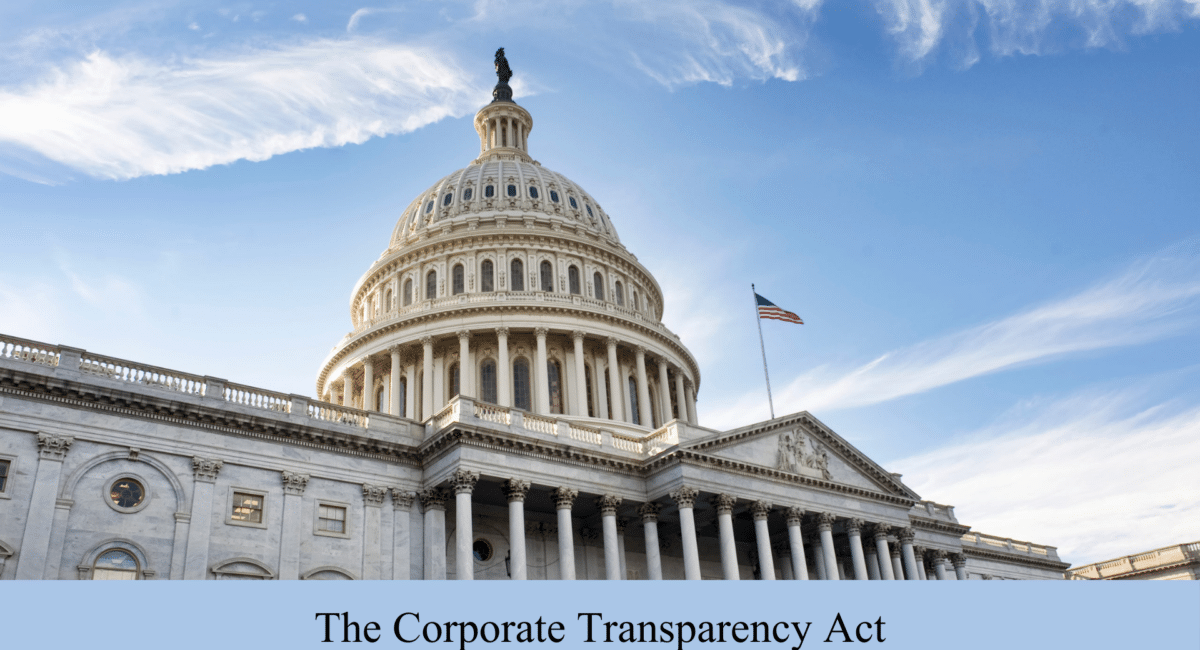ISAACSON LAW BLOG
The Corporate Transparency
Act Where It Stands

The Corporate Transparency
Act Where It Stands
March 2024: The Corporate Transparency Act Was Successfully Challenged. Here Is What Every HOA Needs to Know
Many questions exist over the Corporate Transparency Act (“CTA”), and how homeowners’ associations can comply with the Act’s relatively burdensome requirements. In short, it remains too early to truly know how this Act might affect homeowners’ associations, but for now, at least one Federal Court has ruled the CTA unconstitutional.
Burdensome Requirements for HOAs May Be Coming to an End?
In enacting the CTA, Congress aimed to prevent financial crimes like money laundering and tax evasion, which are often committed through shell corporations. Broadly defined, a shell corporation is a legal entity with no (or minimal) employees, customers, business, or assets. Although shell corporations serve many legitimate purposes, it’s also possible to disguise the identity of interested individuals and the flow of money by layering shell companies on top of each other, “such that each time an investigator obtains ownership records for a domestic or foreign entity, the newly identified entity is yet another corporate entity, necessitating a repeat of the same process[.]” Pub. L. 116-283 § 6402(4).
To help prevent funds from being improperly funneled to enterprises that support criminal or terrorist activities, the CTA requires reporting of those individuals who have a beneficial stake in the corporation to the Treasury Department’s criminal-enforcement bureau, the Financial Crimes Enforcement Network, also known as FinCen. 31 U.S.C. § 5336(b)(1)-(2)(A).
Such regulation necessitates that Homeowners’ Associations (HOAs), with the exception of those classified as tax-exempt under section 501(c)(3) of the Internal Revenue Code, undertake the submission of Beneficial Ownership Information (BOI) reports. It is pertinent to note that while HOAs are generally constituted as non-profit corporations, they do not fulfill the qualifications necessary to be recognized as charitable organizations pursuant to the Tax Code.
The Latest on the Corporate Transparency Act
On March 1, 2024, Judge Liles C. Burke, from the Northern District of Alabama, held that the CTA is unconstitutional because it cannot be justified as an exercise of Congress’ enumerated powers. National Small business United v. Janet Yellen, Case No. 5:22-cv-01448, Doc. 51 (ND Al. 2024). For example, Congress can regulate interstate commerce. U.S. Constitution at Article 1, Section 8, Clause 3. However, Judge Burke determine that the “CRA does not regulate commerce on its face, contain a jurisdictional hook, or serve as an essential part of a comprehensive regulatory scheme, it falls outside of Congress’ power to regulate non-commercial, intrastate activity.” Id., pg. 49.
What Should You and Your HOA Do Now?
As of now, Judge Burke’s decision orders the Treasury Department to cease enforcement of the CTA. Despite this ruling, which could be reversed on appeal, Isaacson Law continues to recommend a wait and see approach. Unless Judge Burke’s decision is upheld on appeal, Isaacson Law recommends that associations plan on complying with the CTA’s requirements. How to proceed is however a decision that should be considered in the final quarter of 2024.
For additional answers to questions about BOI filings and The Corporate Transparency Act, please Contact Troy Isaacson directly at (702) 529-2559.

LOCATION
- (702) 529-2559
- 7575 Vegas Dr, Suite 150N, Las Vegas, Nevada 89128
BUSINESS HOURS
Monday – Friday: 8:30am to 5:30pm
Recent Blog Posts


HOA Fee Increases: Don’t Surprise Homeowners


